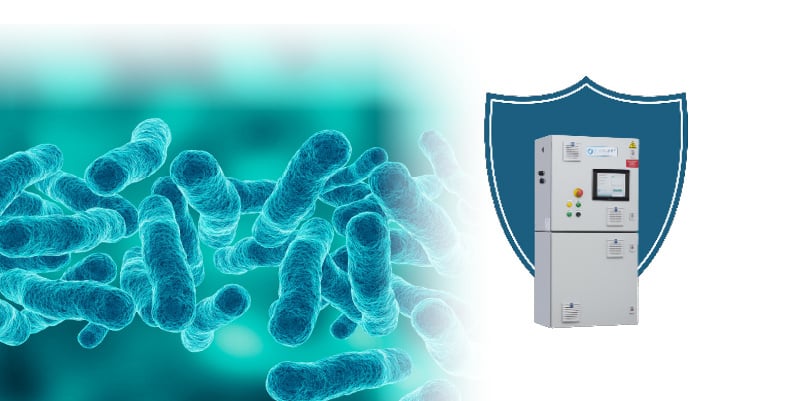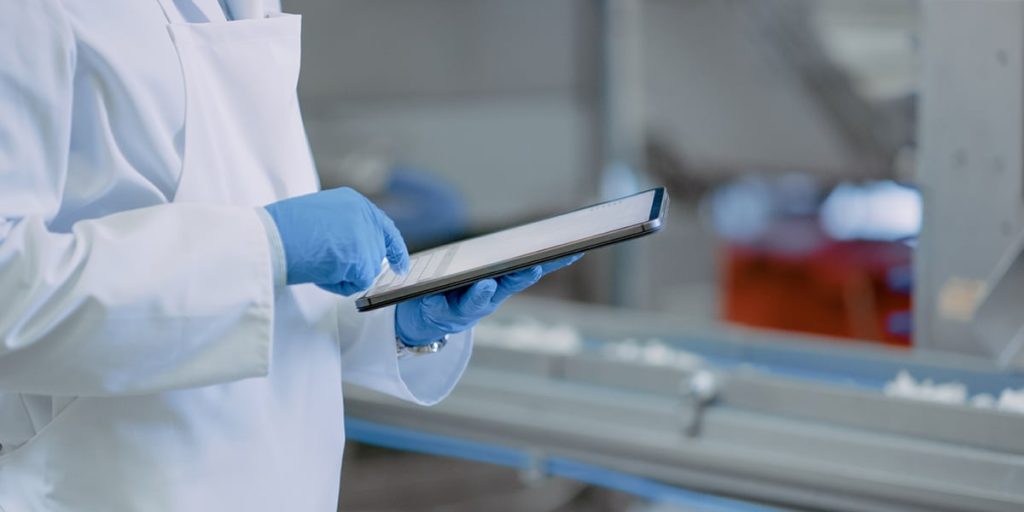Proper sanitation is critical to the success of biomedical research.
The last thing anyone wants on their watch is to have poor sanitation results from your automated washing equipment, time wasted in re-running poorly cleaned equipment, or compromises to the welfare of your animals and the health of your employees who care for them due to bad sanitation practices.
This can be a tricky balance. Depending on the size of your facility, there can be tens, hundreds, or thousands of cages to wash in a day. Everyone wants to reduce costs and increase throughput without affecting the quality of sanitation.
What if you could lower your utility bills, increase throughput, and keep your animals and employees safe?
LabGuard™ LT Acid can help. A cage wash acid detergent designed for use in lower temperatures than standard detergents, LabGuard LT Acid is just as effective as high-temperature wash detergents. Add to that its effectiveness against organic soils and you can reduce your wash temperatures AND the number of chemicals needed to conduct an effective program!
Using LabGuard LT Acid allows you to use cold water in your washer, giving you several benefits:
- Environmental sustainability
- Reduced cleaning time
- Easier rinsing
- Time and money savings
- Improved employee safety
What is LabGuard LT Acid?
LabGuard LT Acid provides sustainable solutions with its unique properties which allow for an accelerated cleaning action in cage, tunnel, bottle, and cabinet washers. Its unique formulation of acid and surfactant is designed to handle organic soils and inorganic scale deposition as a single-step low-temperature acid detergent. LabGuard LT Acid is used in critical research environments, as a single-step low-temperature alternative to traditional dual component, high-temperature washing. It is also very effective in removing hard water and urine scale as a pre-treatment or general use descaler.
LabGuard LT Acid’s features include:
- Strong acidity for removal of organic soils, urine scale, and hard water deposition
- High solubility for easier rinsing
- Reduced cleaning time as it is designed as a single-step cage wash detergent/descaler thus eliminating the need for alkaline detergent
- Flexibility to be used on many metals, polycarbonate, and polysulfone caging
Low-Temperature Wash Advantages
Innovative research requires innovative sanitation solutions. Using LabGuard LT Acid can improve your program in several ways:
1. Environmental Sustainability
LabGuard LT Acid is designed to be used at temperatures as low as 90°F (32.2°C). Standard wash/rinse temperatures are as high as 145°F (63.8°C). By using a lower water temperature you will use less energy per wash cycle.
Washing cages, feeding, and drinking equipment at a lower temperature means you reduce the BTUs needed to heat the wash and rinse water. Reducing the amount of steam needed to create hotter temperatures is the biggest reduction in energy use.
2. Reduced Cleaning Time
Traditional cage washing involves a two-part alkaline/acid cleaning/de-scaling process. Because the LabGuard LT Acid attacks organic soils, urine scale, hard water build-up, and detergent residue, the alkaline cycle becomes unnecessary.
With the alkaline cycle eliminated, an extra 10 minutes is subtracted per wash for cage rack washer operations. Over the course of the day, this can yield as much as a 35% increase in productivity. In large institutions, this will certainly reduce labor costs and can potentially eliminate overtime.
A 35% improvement in productivity will allow you to stay on top of cleaning, keep your operations moving, and reduce your costs.
3. Easier Rinsing
LabGuard LT acid is formulated with a new acid to the biomedical research community. Its solubility allows for easier rinsing than traditional acids, lowering the amount of water needed for rinsing. Using less hot water means lower water and energy bills. Plus, easier rinsing means you can be sure your vivarium lab equipment is residue free, protecting the welfare of your animals and the safety of your husbandry staff.
4. Time and Money Savings
The energy savings realized in using lower-temperature water means lower energy bills. Even decreasing water temperature from 180°F to 140°F could help a biomedical institution see a nearly $22,000 decrease in utility costs per washer.
Since using LabGuard LT Acid reduces wash cycle time and increases throughput, you may be able to reduce the number of shifts needed for cleaning vivarium cages. This reduction in shifts, combined with reductions in water and energy consumption, can lead to a more efficient and less expensive program to manage.
5. Improved Employee Safety
Because washers are using lower-temperature water, the washers are safe to touch without fear of injury. Keeping staff safe ensures your research continues without interruption.
LabGuard LT Acid Helps Create a More Efficient Vivarium Cage Wash Environment
If you’re struggling to figure out how to best clean the most amount of cages without compromising the quality of cleaning, using LabGuard LT Acid and cold-water washing is a great solution. An innovative chemical sanitation partner will provide you with solutions that maximize efficiency without jeopardizing the welfare of the animal and the health of your husbandry team.
RMC’s LabGuard Program designs a comprehensive program for chemical sanitation operations that address vivarium cage wash, animal room cleaning, disinfection, surveillance, and validation.
The LabGuard Program will bring comfort to those who matter most: your animals, husbandry team, principal investigators, and customers.
Contact us today for a complimentary chemical sanitation survey that includes a holistic approach to your sanitation needs.



